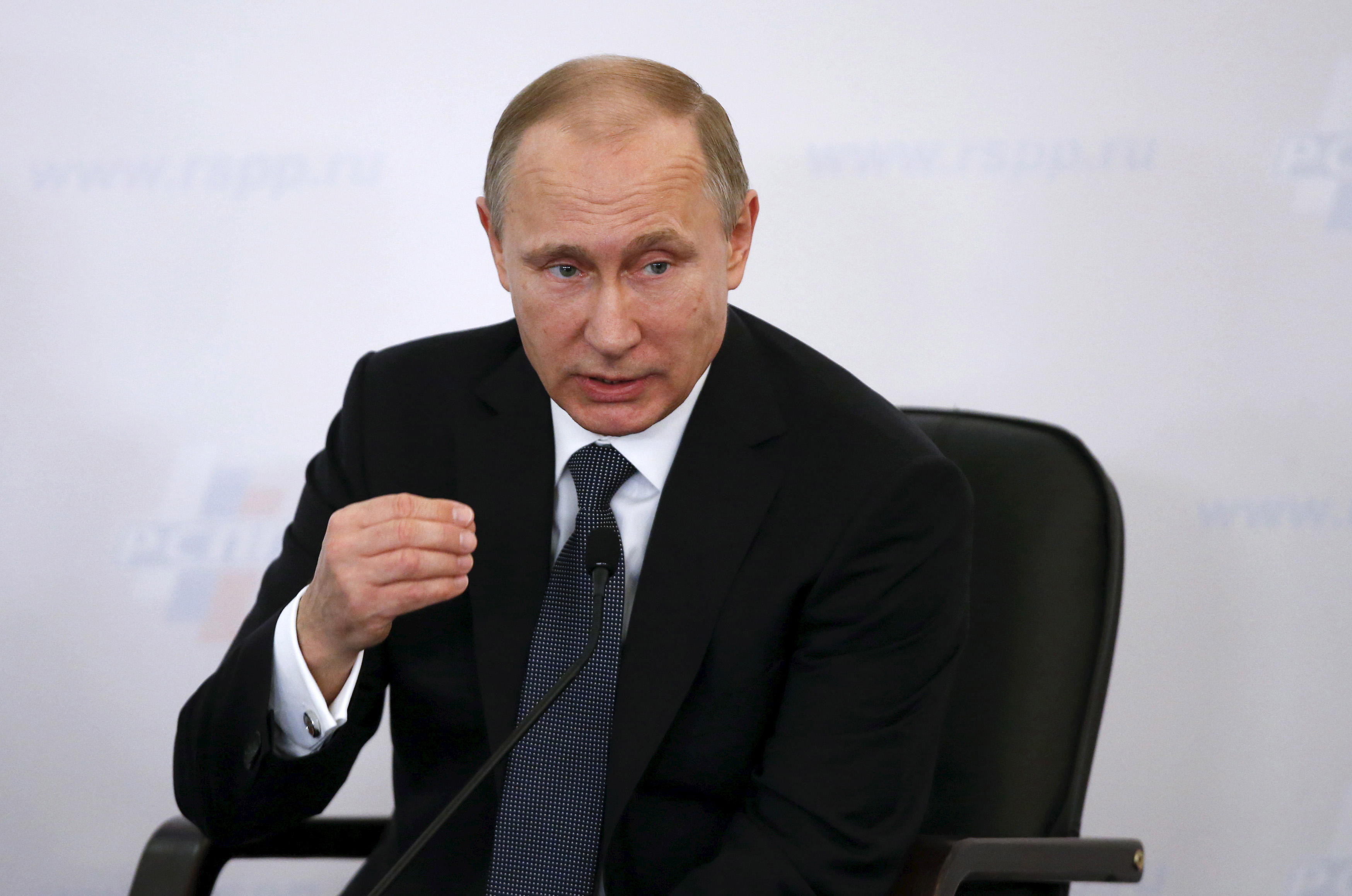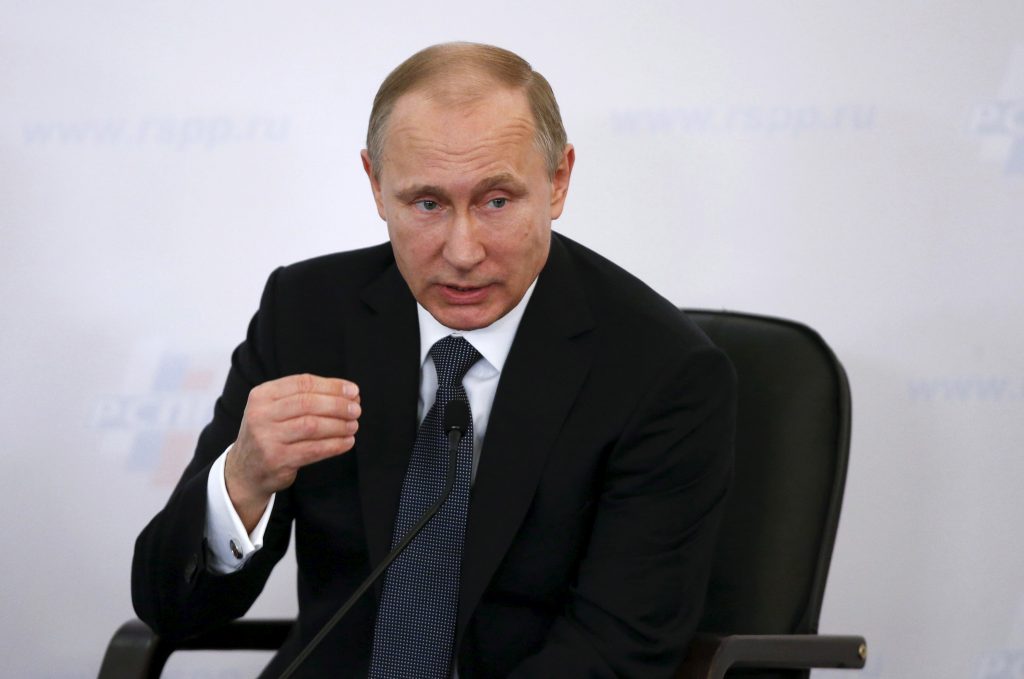
Putin’s War is Not Over Donbas, but a New Russian Empire
According to Vladimir Putin, Crimea and Ukraine are where the spiritual sources of Russia’s nationhood lie. And he “always saw the Russians and Ukrainians as a single people. I still think this way now.”
People observing the crisis triggered by Putin’s aggression against Ukraine therefore ought to understand what these words mean. Quite simply they mean that for Putin—and for much of Russia as well, even without the constant incitement of Kremlin propaganda—there is no such thing as a separate Ukrainian people, national identity, culture, or history. Seen through this Russian lens, the concept of a Ukrainian state independent of Russia is at best a legend or fantasy. At worst it incarnates a threat to the very existence of the Russian state. And obviously Moscow will meet that threat with violence.
But the implications of Putin’s rhetoric and actions go deeper. If no Ukrainian state has the right to exist, the entire settlement of 1989-91 in Eastern Europe, and especially in the former Soviet Union, is illegitimate and a standing threat to the Russian state. Thus Putin not only aims to overthrow the entire post-Cold War order in Europe, the Caucasus, and Central Asia, he is also saying that the Russian state as such not only cannot tolerate an independent Ukraine, it can only survive as an empire.
We need to be clear about this point and what it means because empire, to put it bluntly, means permanent war or conflict. The imperial concept inherently denotes the domination of one people by another and the subjugation of the weaker state by the stronger without any possibility of democratic political expression in the colony. Given Russian history it is equally obvious that no autonomous political life can therefore occur in Russia itself. For Russia, empire is the logical corollary if not precondition for the preservation and extension of Putin’s autocracy. Indeed, it is the only form of state that he and his entourage can envision for Russia or that they have ever known. Moreover, a Russian empire is intrinsically an inherent extra-legal form of rule whose basis is violence (as well as Dostoevsky’s triune formula of mystery, miracle, and authority).
Putin’s objective, then, can only lead only to a perpetual state of war within the former Soviet space and a state of siege with Europe and the world. That means another Cold War, if not a series of hot wars along Russia’s periphery. Russia has already been a state in a permanent war condition since 1994 when the Chechen war broke out as what used to be called a war of national liberation. Now the entire North Caucasus is aflame with a militant Islamist uprising that Moscow cannot quell and that has become ever more brutal. The Kremlin’s 2008 war with Georgia, which Putin admitted to planning from 2006, its coercive incorporation of the Georgian territories of Abkhazia and South Ossetia into Russia, and the war with Ukraine all represent a working out of this logic of imperialism and war.
Even if the Ukraine war devolves into a so-called frozen conflict, that logic will still be operative. We already have seen how quickly frozen conflicts can become unfrozen and how they corrode civility and democracy throughout their regions. Beyond that, a renewed Russian empire essentially reincarnates the idea that Russia is not safe unless everyone connected to it, and not only its immediate neighbors, is unsafe or insecure.
This state can only be preserved then by what the late Russian defense analyst, Vitaly Shlykov, called structural militarization. And we see that happening now with the growth of the defense sector as the rest of the economy shrivels due to sanctions and falling energy prices.
This is what is at stake in Ukraine. It is not just a quarrel over the fate of Ukraine. It is a war for the future of Russia, and beyond that for the long-term future of European and Eurasian security. And to the extent that we hide behind rhetoric that masks a deeper inaction or complacency about Russia and Ukraine, we are only storing up for ourselves and future generations a larger continental crisis. That crisis, even if we ignore it now, will inevitably occur when the unsustainability of this imperial adventure becomes fully clear not to analysts in the West but to the Russian people and their government. For this regime, unlike Gorbachev’s, will not go peacefully. In a country that is arming itself to the hilt, and that possesses nuclear weapons, that is a terrifying future. Thus inactivity today only ensures and accelerates the onset of the much larger conflict that Putin’s action will inevitably bring upon Russia.
Dr. Stephen Blank is a Senior Fellow for Russia at the American Foreign Policy Council.
Image: Russian President Vladimir Putin sees Crimea and Ukraine as "where the spiritual sources of Russia’s nationhood lie," says Stephen Blank, a Senior Fellow for Russia at the American Foreign Policy Council. (Reuters/Maxim Zmeyev)
